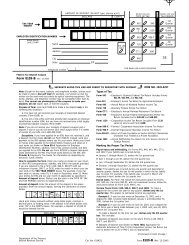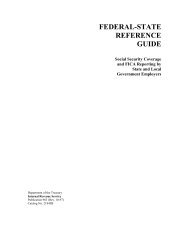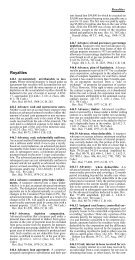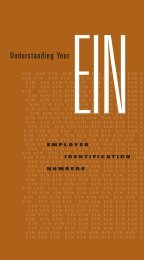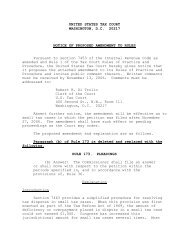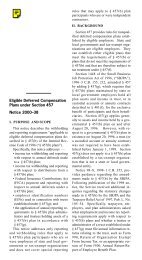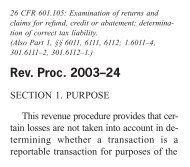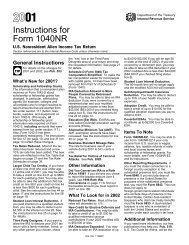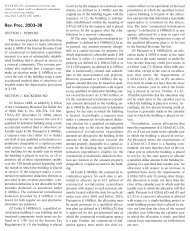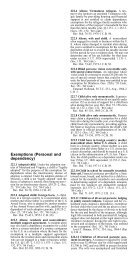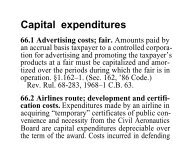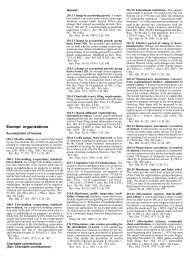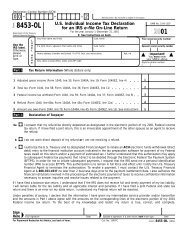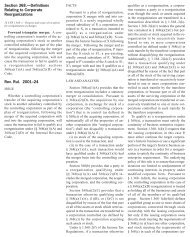Auto Dealerships - Audit Technique Guide - Uncle Fed's Tax*Board
Auto Dealerships - Audit Technique Guide - Uncle Fed's Tax*Board
Auto Dealerships - Audit Technique Guide - Uncle Fed's Tax*Board
Create successful ePaper yourself
Turn your PDF publications into a flip-book with our unique Google optimized e-Paper software.
The dealers may tell the revenue agent they intended to recognize, as income, the amount<br />
remaining in the reserve when the contracts earn out. However, some dealers will have taken a<br />
loan against these funds that cannot be repaid for whatever reason, or have declared a dividend so<br />
there is nothing left to recognize when these contracts do earn out.<br />
The dealer’s control of the reserve is sufficient to allow them to time the liquidation of this<br />
reinsurance company, which may have a large capital loss, with a large capital gain from another<br />
source, using the loss to offset the gain.<br />
These offshore PORCs often are off the dealership books. The amounts forwarded for the<br />
insurance contracts are going to regulated United States insurance companies. Other than the<br />
owner, the employees of the dealership may have no knowledge of this PORC. The revenue<br />
agent would not know of the existence of the PORC unless told by the dealer. At the beginning<br />
of the examination, the agent should ask about the existence of a PORC and reinsurance<br />
arrangements. Often determining whether the dealer filed a Form 1120-PC, a Form 1120-L or a<br />
Form 990 will lead the agent in the direction of the PORC.<br />
We also recommend that, prior to questioning the dealership’s shareholder(s) about related<br />
transactions and ownership interests, the initial IDR specifically request the existence of these<br />
related returns. If the dealer owns the PORC though, it is possible that the dealership tax return<br />
and books and records will not have any indication of the PORC (assuming no interaction<br />
whatsoever, e.g. loans, etc.). The agent may then have to request information about the PORC in<br />
relation to the dealer’s own personal tax return.<br />
Producer Owned Reinsurance Company Issues<br />
Some dealers are treating these captive offshore reinsurance companies as organizations<br />
qualifying under IRC section 501(c)(15)(A). This section grants tax exempt status to insurance<br />
companies or associations other than life insurance companies * * * if the net premiums written<br />
for the taxable year do not exceed $350,000. Dealers now file Form 990 where they previously<br />
filed Form 1120-PC for the PORC. Form 990 is an information return for tax exempt<br />
organizations.<br />
The Internal Revenue Manual requires revenue agents to refer the examination of a Form 990 to<br />
the Tax Exempt and Government Entities (TEGE).<br />
If an agent finds a situation where the PORC is treated as a tax exempt organization the agent<br />
should become familiar with IRC section 845 which allows the Service to reallocate the income of<br />
a reinsurance arrangement to its true earner where any such arrangement is set up for tax<br />
avoidance purposes. The agent may also raise an issue that the Form 990 is an improper filing<br />
because the producer owned reinsurance company did not qualify as a tax exempt organization.<br />
If this argument can be made then the PORC would be taxed as an insurance company on a Form<br />
1120-PC. A traditional sham argument as discussed in Chapter 12 and outlined below can be<br />
used to support the issue.<br />
Excise Tax, of about 4 percent per contract, under IRC section 4371, may be due on each<br />
13-5



